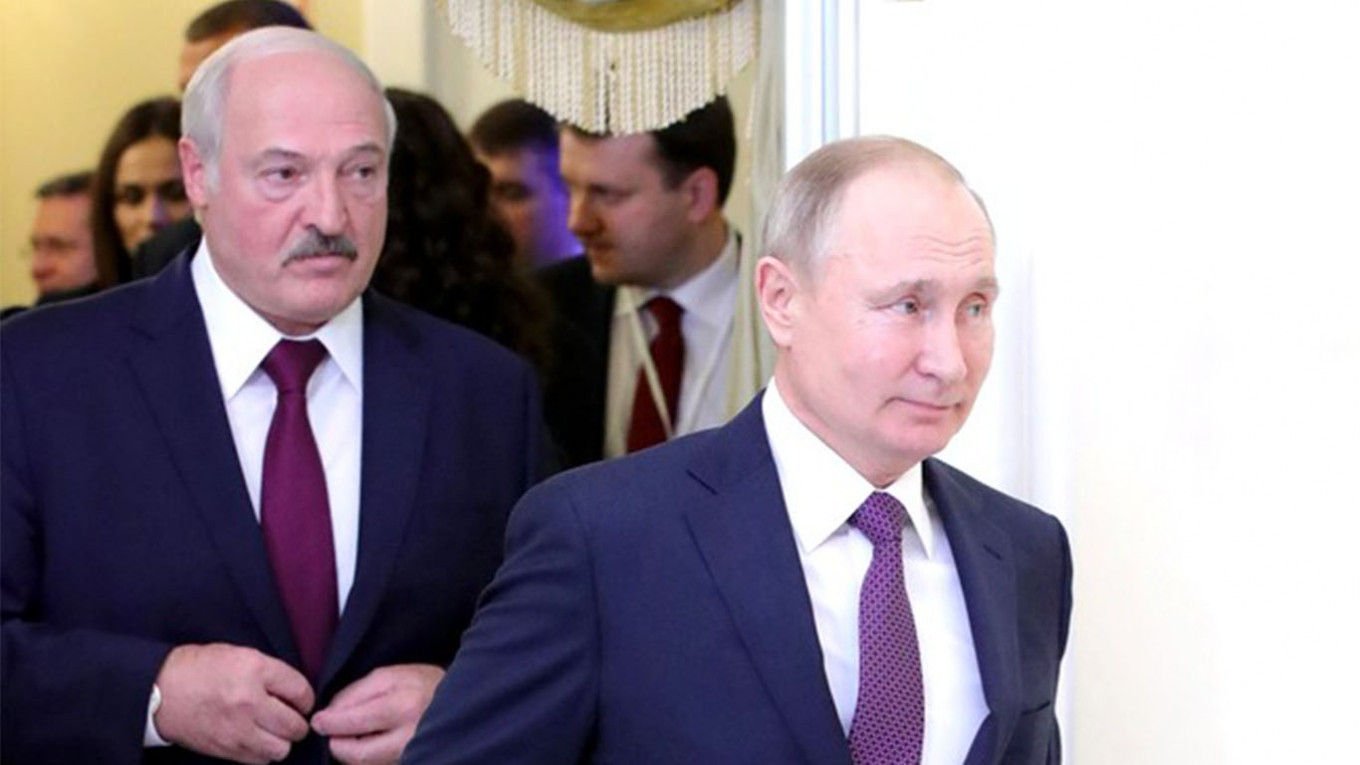
The opposition in Belarus kept up the pressure on President Alexander Lukashenko with a fresh demonstration in Minsk on Saturday, as the strongman reached out to Russia in an apparent plea for help.
Some 5,000 opposition supporters gathered near a metro station in the capital where a demonstrator died during this week’s police crackdown on protests against Lukashenko’s claim to have won re-election last Sunday.
With the opposition gaining momentum after days of demonstrations, Lukashenko’s main election challenger Svetlana Tikhanovskaya had called on supporters to rally again over the weekend.
Demonstrators laid flowers at the site where Alexander Taraikovsky, 34, died on Monday, with many chanting “Leave!” and some holding up pictures of protesters with severe bruises, after accounts emerged of detained demonstrators being beaten and tortured.
Facing the biggest challenge to his rule since taking power in 1994, Lukashenko made an unusual public plea to speak with Russian President Vladimir Putin.
“The aggression against Belarus is developing. We need to contact Putin, the president of Russia, so that I can talk with him now. Because this is already a threat not only to Belarus,” Lukashenko told government officials in a televised meeting.
He said Belarus was facing “external interference” and that a “union state” that links the two countries’ economies and militaries needed “protection”.
The Kremlin confirmed that the two leaders had spoken by phone, saying both sides were confident the situation would be “resolved soon”.
Mourners also gathered separately on Saturday for a funeral for Taraikovsky, with hundreds of people joining his family as they surrounded his coffin.
March for Freedom
The opposition is planning a major show of force on Sunday with a “March for Freedom” through the streets of central Minsk.
Tikhanovskaya, a 37-year-old political novice who ran after other opposition candidates including her husband were jailed, accuses Lukashenko of rigging the vote and has demanded he step down so new elections can be held.
The 65-year-old has ruled the ex-Soviet country with an iron grip and claims to have won the election with 80 percent of the vote.
Tikhanovskaya left the country on Tuesday for neighboring Lithuania, with her allies saying she came under official pressure, but on Friday she re-emerged with the call for a weekend of “peaceful mass gatherings” in cities across the country.
She is also demanding authorities be held to account for the crackdown, which saw police use rubber bullets, stun grenades and, in at least one case, live rounds to disperse protesters, with at least 6,700 people detained and hundreds injured.
Officials have confirmed two deaths in the unrest, including Taraikovsky who they say died when an explosive device went off in his hand during a protest, and another man who died in custody after being arrested in the southeastern city of Gomel.
Widespread torture
On Friday authorities began releasing hundreds of those arrested and many emerged from detention with horrific accounts of beatings and torture.
Amnesty International condemned “a campaign of widespread torture and other ill-treatment by the Belarusian authorities who are intent on crushing peaceful protests by any means.”
In some of the biggest demonstrations yet, thousands marched in Minsk on Friday to denounce the police violence and demand Lukashenko step down.
In euphoric scenes on Independence Square in Minsk, protesters hugged and kissed young interior ministry troops guarding a government building and put flowers in their anti-riot shields.
Unlike the scenes of violent detentions days earlier, police stood by quietly.
Large groups of workers from huge tractor and automobile factories downed tools for the first time and marched to the central square, chanting for Lukashenko to “Leave!” and “Long live Belarus!”
Protesters danced and sang and waved lit-up mobile phones before gradually dispersing over the evening without police making arrests.
EU greenlights sanctions
European Union ministers agreed Friday to draw up a list of targets in Belarus for a new round of sanctions in response to the post-election crackdown.
Sweden’s Foreign Minister Ann Linde said in a tweet that the “EU will now initiate a process of sanctions against those responsible for the violence, arrests and fraud in connection with the election”.
The leaders of the three ex-Soviet Baltic states — Estonia, Lithuania and Latvia — on Saturday condemned the crackdown and called for a new vote.
In a statement the three countries’ prime ministers urged Minsk “to conduct free and fair presidential elections in a transparent way”.
Lukashenko has dismissed the demonstrators as foreign-controlled “sheep” and “people with a criminal past who are now unemployed”, repeatedly accusing foreign governments of plotting his downfall.
Tikhanovskaya on Friday announced the creation of a Coordination Council to ensure a transfer of power, asking foreign governments to “help us in organizing a dialogue with Belarusian authorities”.
She demanded the authorities release all detainees, remove security forces from the streets and open criminal cases against those who ordered the crackdown.
